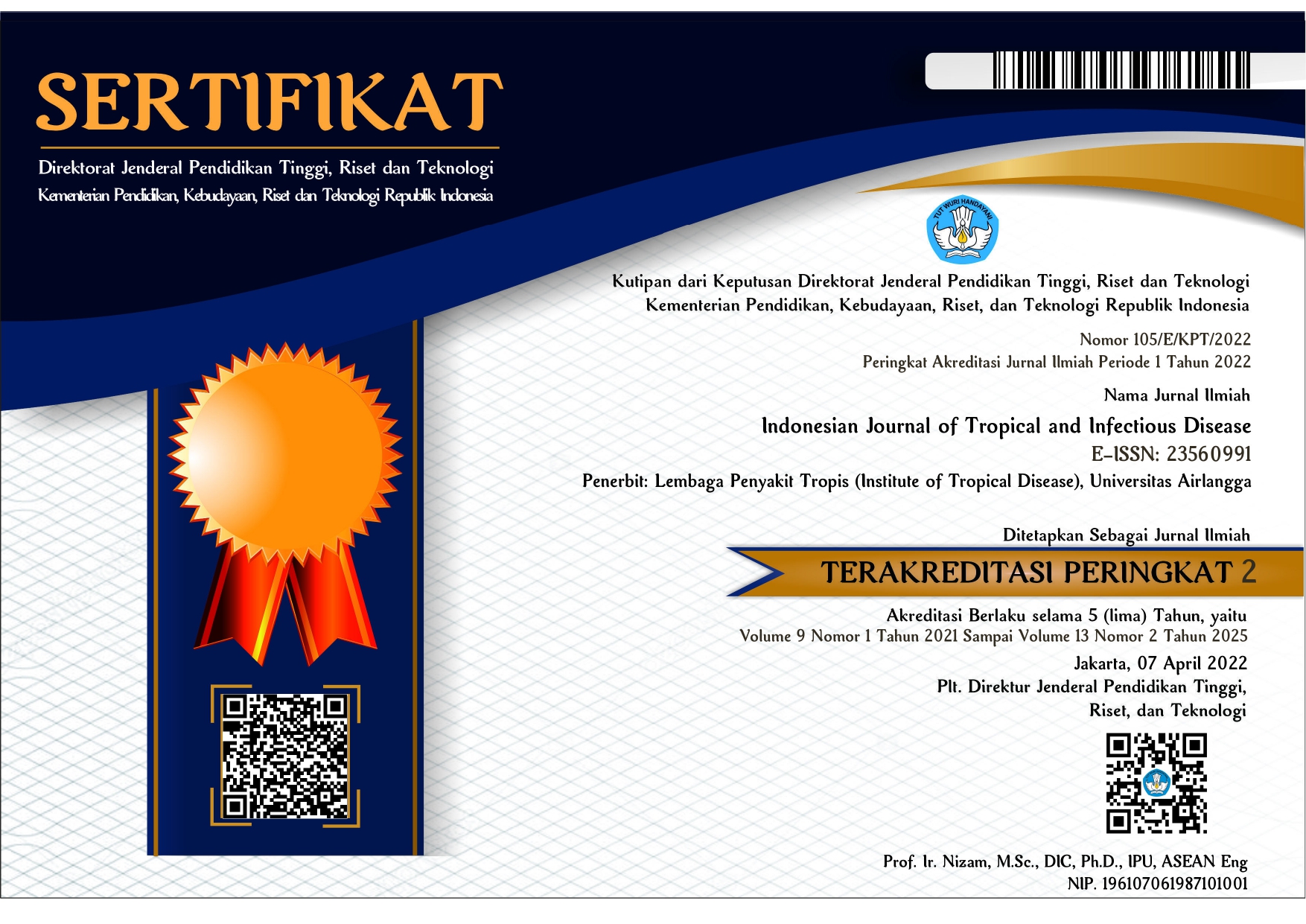ROLE OF BREAK CLUSTER REGION (BCR) - ABELSON MURINE LEUKIMIA (ABL) EXAMINATION IN CHRONIC MYELOGENOUS LEUKEMIA (CML)
Downloads
Chronic myelogenous leukemia (CML) is a clonal bone marrow stem cell disorder associated with a characteristic chromosomal translocation called the Philadelphia chromosome which caused a proliferation of mature granulocytes (neutrophils, eosinophils and basophils) and their precursors, increasing unregulated growth of predominantly myeloid cells in the bone marrow and its accumulation in the blood. As myeloproliferative disease, Chronic Myelogenous Leukemia or CML is a malignancy of the sixth-highest, reaching 15%
of all blood malignancies in adults with an incidence of 1.1 per 100,000 population (Ugroseno, 2012). The CML diagnosis is made based on a presence of Philadelphia chromosome due to the existence of a reciprocal translocation of chromosomes 9 and chromosome 22 t (9.22), and raises the fusion of Break Cluster Region (BCR) gene of chromosome 22 on band q11 by Abelson Murine Leukemia (ABL). The fused BCR-ABL gene has BCR sequences of different length, so it produces a protein that has a different molecular weight. Despite
having different length of BCR sequences, however, the length of fuses ABL gene sequence is constant. Associated with this different BCR sequence length are the three variations of the BCR-ABL gene fusion. The first variation is a Major Break Cluster (M-BCR), the BCR gene break is found in exon 2 in e13-E14 region. This type of CML is the fusion of BCR exon b2 or b3 to ABL exon a2, forming two major transcripts of the b2a2 or b3a2, which has a protein product with 210 kD weight or referred to as p210. The second variation is Minor BCR (m-BCR), which has e1a2 fusion. CML with BCR-ABL gene fusion of this type has a protein product with a molecular weight of 190 kDa or called p190. The third variation is micro-BCR (m-BCR), with BCR gene break between exons E19 and e20b that form mRNA transcripts e19a2, with BCR-ABL protein P230. This fused gene can be detected with qualitative multiplex PCR.
The Indonesian Journal of Tropical and Infectious Disease (IJTID) is a scientific peer-reviewed journal freely available to be accessed, downloaded, and used for research. All articles published in the IJTID are licensed under the Creative Commons Attribution-NonCommercial-ShareAlike 4.0 International License, which is under the following terms:
Attribution ” You must give appropriate credit, link to the license, and indicate if changes were made. You may do so reasonably, but not in any way that suggests the licensor endorses you or your use.
NonCommercial ” You may not use the material for commercial purposes.
ShareAlike ” If you remix, transform, or build upon the material, you must distribute your contributions under the same license as the original.
No additional restrictions ” You may not apply legal terms or technological measures that legally restrict others from doing anything the license permits.























